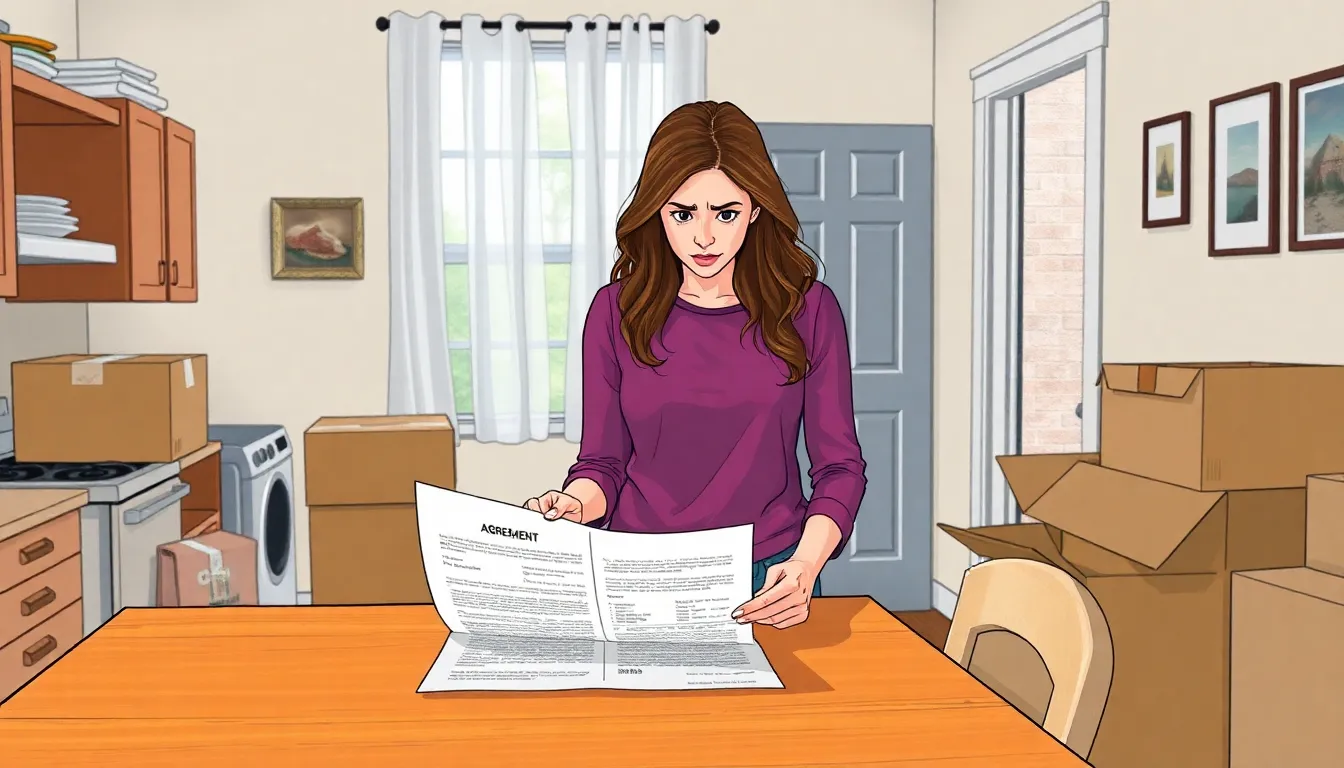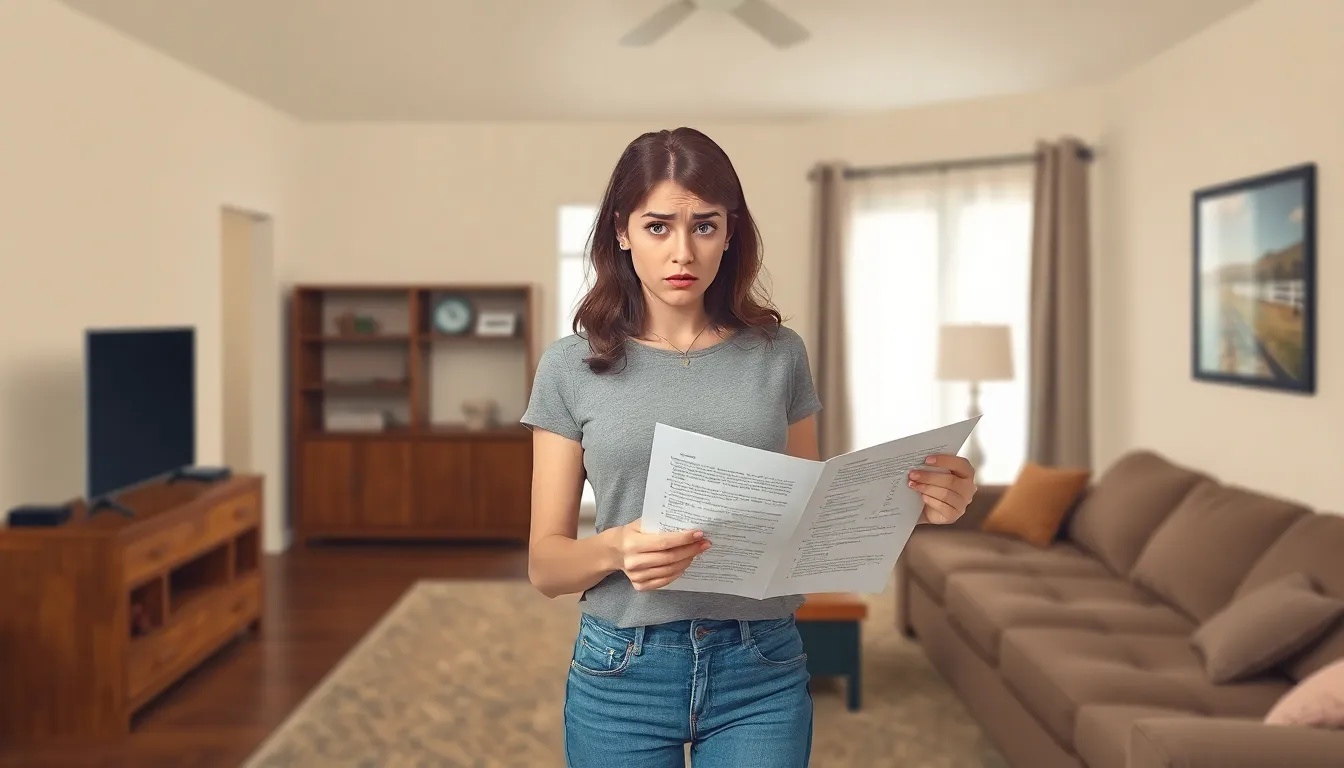Navigating the world of tenant rights in Pennsylvania without a lease can feel like wandering through a corn maze—confusing and a bit daunting. But don’t worry; even without a written agreement, tenants have rights that pack a punch. Whether you’re facing unexpected rent hikes or a landlord who thinks “quiet hours” means 3 AM karaoke, knowing your rights can turn the tables in your favor.
Table of Contents
ToggleOverview of Tenant Rights in PA No Lease
Tenant rights in Pennsylvania without a written lease remain robust. Tenants can assert their rights even in the absence of formal agreements. Unsurprisingly, key rights include protection from unjust eviction, which can occur only through a legal process. Renters cannot be forcibly removed without a court order, ensuring they maintain occupancy until a legal resolution occurs.
Additional rights involve the maintenance of habitable living conditions. Landlords must provide safe and healthy environments, regardless of lease status. If a landlord fails to address urgent repairs, tenants may pursue remedies under Pennsylvania law. Notably, tenants also retain the right to privacy, allowing them to enjoy their living space without unwanted intrusion.
Rent control does not exist in Pennsylvania; however, excessive rent increases can trigger legal action. Tenants may challenge such increases, especially if they occur mid-lease period. Additionally, returning security deposits follows specific regulations. Landlords must return security deposits within thirty days after lease termination.
Rights extend to retaliation protection, preventing landlords from retaliatory actions against tenants exercising their rights. Tenants can report violations to local housing authorities or even seek legal assistance. Engaging in constructive communication with landlords often resolves disputes, fostering smoother tenant-landlord relationships.
Ultimately, understanding these rights equips tenants to navigate potential conflicts effectively, even without a written lease. Knowledgeable awareness of tenant rights ensures individuals can safeguard their living situation and assert their legal entitlements confidently.
Understanding No Lease Situations


Navigating a no lease situation in Pennsylvania presents unique challenges for tenants. However, tenants maintain important rights even without a written agreement.
Types of Tenancies
Tenancies without leases typically fall into two categories: periodic tenancies and at-will tenancies. Periodic tenancies operate on a regular schedule, such as monthly or weekly, and automatically renew unless either party provides notice. At-will tenancies allow tenants to reside without a set end date, enabling either party to terminate the arrangement with minimal notice. Each type of tenancy affords tenants specific protections under Pennsylvania law, thus ensuring their rights are upheld even in the absence of formal leases.
Common Issues Faced by Tenants
Tenants without leases often encounter various challenges. Sudden rent increases can create financial strain, especially without prior notice. Disputes with landlords regarding property maintenance frequently arise, as tenants remain entitled to habitable living conditions. Additionally, issues of privacy may surface, with landlords entering properties without proper notification. Retaliation for asserting rights can also occur, leaving tenants vulnerable. Knowing these common issues helps tenants navigate their rights and address conflicts effectively.
Legal Protections for Tenants
Tenants in Pennsylvania without a written lease enjoy various legal protections. Understanding these rights helps in managing potential conflicts effectively.
State Laws Governing Tenants
Pennsylvania law provides significant rights to tenants, even without a formal lease. Tenants can expect fair treatment regarding notice periods for rent increases and evictions. Periodic tenancies require a 15-day notice before rent increases or eviction proceedings. At-will tenancies, while less stable, also offer the same legal process for eviction. This protection ensures tenants cannot be removed without legal recourse. Additionally, laws mandate habitability standards, requiring landlords to maintain safe and livable conditions. These regulations reinforce tenants’ rights, giving them a legal avenue for disputes.
Responsibilities of Landlords
Landlords in Pennsylvania have specific responsibilities even when no lease exists. Maintenance of rental properties falls under their duties, ensuring units meet health and safety standards. They must address urgent repair requests in a timely manner. Landlords also cannot retaliate against tenants for reporting maintenance issues or asserting their rights. Stipulations exist regarding security deposits; landlords must return these within 30 days of lease termination. Respect for tenant privacy remains crucial, prohibiting landlords from entering rented spaces without proper notice. These requirements aim to create a fair and safe rental environment.
Steps Tenants Can Take
Tenants can proactively protect their rights even without a formal lease. Taking certain steps can significantly improve their situation.
Documenting Issues
Documenting issues becomes essential for tenants facing problems with their landlords. Keeping detailed records of communication clarifies disputes. Photographs or videos of any maintenance issues help establish a timeline for repairs. Written notices of complaints to the landlord ensure there’s evidence of requests. Collecting and organizing this information positions tenants to present a strong case if the situation escalates. Additionally, tracking rent payments protects against any wrongful eviction claims related to non-payment.
Seeking Legal Assistance
Seeking legal assistance provides tenants with expert guidance. Consulting with a housing attorney informs individuals about their rights and options. They can help clarify complex laws surrounding tenant rights in Pennsylvania, especially for those without a lease. Legal aid organizations often offer free or low-cost assistance for those in financial need. Engaging a lawyer may facilitate negotiations with landlords, helping to resolve issues more effectively. Preparing for court, if necessary, becomes easier with legal representation.



